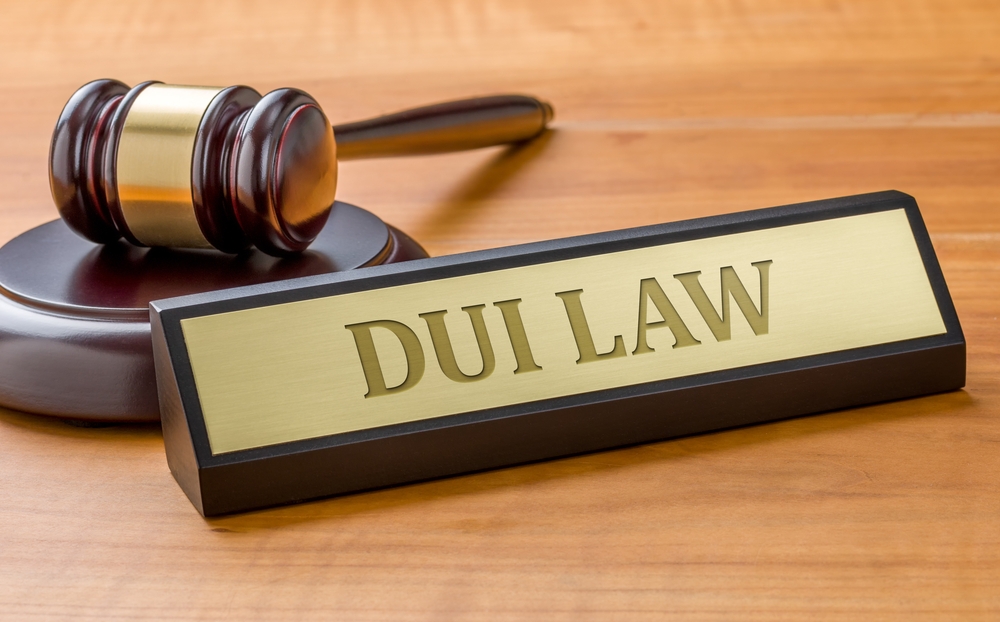
Driving under the influence (DUI) or driving while intoxicated (DWI) is a serious offense that can have life-altering consequences. In New Jersey, as in many other states, the legal system takes a strong stance against impaired driving. DUI/DWI convictions can lead to a range of penalties, from fines and license suspensions to imprisonment. To navigate the complex legal landscape surrounding DUI/DWI cases in New Jersey, it is crucial to understand the relevant laws, consequences, and the need for experienced legal representation.
At Camili & Capo, PA, we are dedicated to protecting your rights and driving privileges if you find yourself facing DUI/DWI charges in the Garden State. In this comprehensive guide, we will walk you through New Jersey's DUI/DWI laws, legal blood alcohol concentration (BAC) limits, the consequences of convictions, potential defense strategies, and provide real-life examples of successful DUI/DWI defense.
New Jersey's Legal Blood Alcohol Concentration (BAC) Limits
One of the primary factors that law enforcement uses to determine whether an individual is driving under the influence or while intoxicated is their blood alcohol concentration (BAC). In New Jersey, as in many other states, the legal BAC limit for adult drivers is 0.08%. For drivers under the age of 21, a BAC of 0.01% or higher can result in DUI/DWI charges.
It's important to note that New Jersey operates under a "strict liability" policy when it comes to BAC levels. This means that if your BAC is above the legal limit, you can be charged with a DUI/DWI, regardless of whether you exhibited any signs of impaired driving. This strict approach is designed to discourage individuals from drinking and driving, with the aim of promoting road safety.
Consequences of DUI/DWI Convictions
DUI/DWI convictions in New Jersey come with a wide range of consequences, and these consequences can vary based on factors such as prior convictions, BAC level, and the circumstances surrounding the incident. Below, we will outline some of the potential penalties that you could face if convicted of a DUI/DWI in New Jersey.
License Suspension
A common consequence of a DUI/DWI conviction in New Jersey is the suspension of your driver's license. The length of the suspension can vary depending on the circumstances of the case, but it typically ranges from three months to one year for first-time offenders. Subsequent convictions can lead to longer suspensions, potentially up to 10 years.
Fines and Financial Penalties
In addition to license suspension, DUI/DWI convictions often result in significant fines. These fines can range from hundreds to thousands of dollars, depending on the number of prior convictions and other factors. It's crucial to understand that these financial penalties can place a significant burden on your finances.
Ignition Interlock Device (IID)
New Jersey may require individuals convicted of DUI/DWI to install an ignition interlock device (IID) in their vehicle. This device requires the driver to pass a breathalyzer test before starting the vehicle. The cost of installing and maintaining an IID can add up over time and significantly impact your daily life.
Jail Time
In some cases, DUI/DWI convictions can lead to imprisonment. The length of the jail sentence can vary, with first-time offenders typically facing shorter sentences, while repeat offenders may spend a more extended period behind bars. Jail time is a possibility that can have a substantial impact on your personal and professional life.
Insurance Premiums
A DUI/DWI conviction can also result in significantly higher car insurance premiums. Insurance companies view individuals with DUI/DWI convictions as high-risk drivers, and as a result, your rates may increase substantially. This financial burden can persist for several years.
Defense Strategies for DUI/DWI Cases
If you've been charged with a DUI/DWI in New Jersey, it's important to understand that you have rights and legal options. There are several defense strategies that an experienced criminal defense attorney can employ to help protect your rights and mitigate the potential consequences. Some of these strategies include:
Challenging Sobriety Tests
Sobriety tests, such as field sobriety tests and breathalyzer tests, are often used as evidence in DUI/DWI cases. However, these tests are not foolproof, and there are many factors that can lead to inaccurate results. A skilled attorney can challenge the validity of these tests, including whether they were administered correctly and whether the equipment was properly maintained.
Questioning the Traffic Stop
To initiate a DUI/DWI arrest, law enforcement must have a valid reason to pull you over. If the initial traffic stop was not based on reasonable suspicion or probable cause, your attorney can argue that the evidence obtained thereafter should be excluded from the case.
Medical Conditions and Medications
Certain medical conditions and medications can affect a person's ability to perform sobriety tests and may lead to a higher BAC reading. If you have a legitimate medical reason for your performance or BAC results, your attorney can present this as a defense in your case.
Procedural Errors
There are strict procedures that law enforcement must follow during a DUI/DWI arrest. Any deviations from these procedures can be grounds for a case dismissal or reduction of charges. A knowledgeable attorney can identify and exploit these procedural errors to your advantage.
Real Case Examples of Successful DUI/DWI Defense
To illustrate the effectiveness of experienced legal representation in DUI/DWI cases, we'll provide you with a couple of real-life examples where individuals faced DUI/DWI charges in New Jersey and successfully defended their rights and driving privileges.
Case 1: Challenging the Accuracy of Breathalyzer Test
John Smith was pulled over by a New Jersey police officer for suspected DUI. He was subjected to a breathalyzer test, which indicated a BAC above the legal limit. John, however, maintained that he had only consumed one drink and couldn't have been over the limit.
John's attorney, hired from Camili & Capo, PA, conducted a thorough review of the case. It was discovered that the breathalyzer machine had not been calibrated correctly, and maintenance records were not up to date. The attorney successfully argued that the test results were unreliable due to the machine's issues, leading to the dismissal of the DUI charges.
Case 2: Invalid Traffic Stop
Sarah Davis found herself in a situation where she was pulled over by a police officer who claimed she was weaving between lanes. The officer suspected DUI and conducted a field sobriety test. The results were used as evidence against her.
Sarah's attorney, also from Camili & Capo, PA, carefully reviewed the circumstances of the traffic stop and found that the officer lacked reasonable suspicion to pull Sarah over. The attorney successfully argued that the stop was unlawful, resulting in the suppression of all evidence obtained thereafter, leading to the dismissal of the case.
Contact an Experienced DUI/DWI Defense Lawyer At Camili & Capo, PA for a Free Consultation About Your Case Today
DUI/DWI charges in New Jersey are not to be taken lightly. The consequences can be severe and life-altering. It's vital to understand the laws and penalties associated with DUI/DWI in the state and to be aware of your rights and legal options.
To protect your rights and driving privileges, it's essential to seek experienced legal representation. At Camili & Capo, PA, we have a proven track record of successfully defending individuals facing DUI/DWI charges. Our knowledge of New Jersey's DUI/DWI laws, our experience in challenging sobriety tests, and our dedication to protecting our clients' rights make us the right choice for your defense.
If you or a loved one is facing DUI/DWI charges in New Jersey, don't hesitate to contact us. We are here to guide you through the legal process, provide expert advice, and work diligently to achieve the best possible outcome for your case. Your future and your driving privileges are worth protecting, and we are here to help you do just that.

